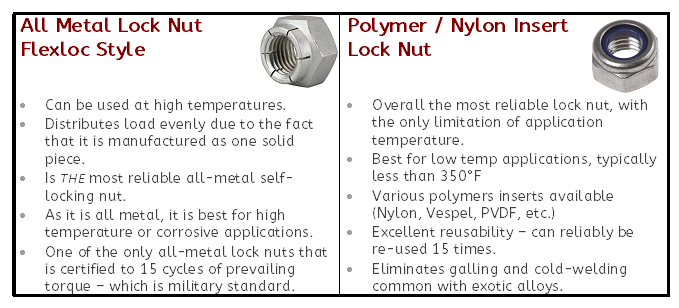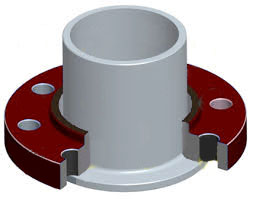Not sure what material is best for your application?
Contact an Expert
Search By Material
Search By Application
Monthly Archives: February 2017 here
Q: Why does Zirconia cost more than Alumina? A: 1) Raw material cost: Aluminia is far more abundant, whereas Yttrium oxide which is a stabilizer for Zirconia ceramic, is a rare earth element. 2) Shaping costs: Due to its higher density it takes approximately 10x longer to grind down and shape … Continue reading
Q: What advantages does Zirconia have over Alumina? A: Usually for most high temperature or electric insulator applications where ceramics are needed, alumina ceramic fasteners are the most popular choice due to their properties and relatively affordable price compared to zirconia fasteners. However sometimes the extreme properties of zirconia fasteners … Continue reading
Q: Need to replace a standard steel washer with a non-conductive material. A: After speaking with this customer, I learned that he needed to replace a standard steel washer with a non-conductive material for a critical bolted joint. These washers needed to withstand 70°C temperatures while maintaining preload. He … Continue reading
Q: Can you provide alternative for a nylon pan head screw? A: Here the customer needed an alternative to nylon. Resistance to electrical fields was a primary concern. In addition, he also needed a material that had a better dissipation factor than nylon. In this situation we would recommend PEEK. It … Continue reading
Q: Need help with specific needs regarding Polyimide fasteners and their high temperature capabilities A: This Italian company was developing a new client oven. They were interested in Polyimide fasteners and their high temperature capabilities. In particular they needed: Usability to 300°C Capability with metal connections Heat and electric … Continue reading
 A lock nut resists loosening from vibrations and torque. Specialty material lock nuts offer the ideal solution to many extreme applications environments. They combine the unique properties of specialty materials, with the secure locking feature of a lock nut to prevent failures in the field.
A lock nut resists loosening from vibrations and torque. Specialty material lock nuts offer the ideal solution to many extreme applications environments. They combine the unique properties of specialty materials, with the secure locking feature of a lock nut to prevent failures in the field.

 Q: When is it best to use a lap joint flange? A: Lap joint flanges are good for very expensive materials like tantalum and zirconium and other specialty alloys like Hastelloy or Inconel due to reduced cost of sleeve vs solid flange. Lap joint flanges are unique in that they …
Q: When is it best to use a lap joint flange? A: Lap joint flanges are good for very expensive materials like tantalum and zirconium and other specialty alloys like Hastelloy or Inconel due to reduced cost of sleeve vs solid flange. Lap joint flanges are unique in that they …